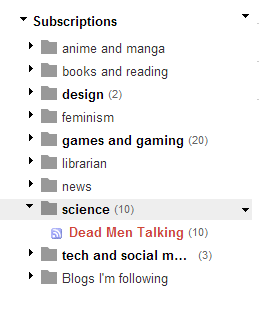In my stream last night, I saw that Gay Kawasaki had reposted a listicle from Cristina Cordova about how to attract more women to startups. I agree with most of the post in that you need to clean up bro culture in the workplace, for civility and for clarity in job titles and postings, but I'm not sure you need to do it on account of my fragile lady parts.
First of all, suggesting that Team Lady is the only group of people who would be upset by bro culture overlooks a significant group of people who dislike aspects of that culture and don't think it is good for business.
First of all, suggesting that Team Lady is the only group of people who would be upset by bro culture overlooks a significant group of people who dislike aspects of that culture and don't think it is good for business.
- We love your cultural symbols--especially when I don't have to think about what they mean. Oh, god, the ninja thing. This is a bit like talking about how your Jedi mind tricks worked and meaning it. This is about what we believe an icon is and not what it actually represents--and how little it has common with the job you have to do. These job titles don't make sense on your resume, so if your startup fails and you need to look for a paying job with another company everybody in their HR thinks you ran an anime club for three years.
And while we are misappropriating cultural icons, why can't we use [code] slinger, gangster, naut or crusader? Because they sound silly and childish and only the Japan of our imagination is cool enough to rate a job title. Cordova does point out that some startups use rockstar and hacker, but again, we use them because we don't have to think about what the term really represents, and she doesn't mention how those titles undermine the credibility of your employees when they are engaged in the work of growing, marketing, representing or selling your startup. - Alcohol makes the money come round. Recently, I toured a startup facility with a friend of mine who abstains from drinking alcohol for religious reasons. As the guide spent five minutes expressing how much business got done in the tavern below the startup space, my friend just put her hand over her eyes and tried to block him out. His argument was that if you don't drink, there was no reason for the other people in the space to talk to you and give you advice and assistance. And the space was awesome. I wanted to bring my sleeping bag to work and fuel my enterprise with the coffee from the excellent coffee shop below that he failed to mention on his tour, except as another tenant in the building. The insistence that alcohol lubricates business persists in many industries, not just in coding, and that the cool and knowledgeable drink beer and lots of it, is a myth that we perpetuate, as in the Hipper Crowd of Shushers.
Reliance on alcohol to facilitate business cuts out a whole group of people who don't want to mix alcohol with work and who might make stupid decisions if they did mix alcohol with work. It's like we're back in high school, all being pressured by the cool kids to drink. And if you did give in to their pressure, let's remember how that turned out. Now imagine it posted to YouTube while you are trying to get VC funding. - Lets have a discussion about how jerks are replaceable. At one of my interviews, I had a grilling from the IT team leader who used a common programming term incorrectly. I corrected her, but SHE quickly established that her usage was correct. I let it go and got the job, but she continued to bring it into the conversation for two weeks after my hire until our supervisor told her to let it go. My point is, jerk is genderless and not limited to coders. Maybe we should talk about how these people strain the workplace, as well as misrepresent us to clients. Hire well is good advice for all hires, regardless of gender, and maybe your college roommate who joined the startup in its first week is not as good at their job as you think.
- She doesn't talk about the roles that women will be hired for. This is one issue where there appears to be a workplace gender divide. I have suggested that the post focuses on hiring women coders, but women do play other roles that a startup needs to thrive and they are not treated as if they understand the arcane mysteries of technology, as in this ad from Samsung.
Ah, the ladies, bringing down the code bros with their insistence on not spending money on two kegerators. And not being smart enough to recognize the redundancy reducing technology the bros are using to mock them with.
Though they could have trotted out the silverback stereotype, the middle aged, suited dude who refers to all of the code bros in the diminutive, as in Danny or Jimmy, and who hasn't updated his technological know how since teletype. But there are no old people in startups anyway.
So yes, I admit that gender does play a role; however, there are some areas, such as alcohol and protecting crappy employees, that should be discussed without gender, since some arguments that use gender fairness as their rationale put women in the position of being the angel in the workplace.








